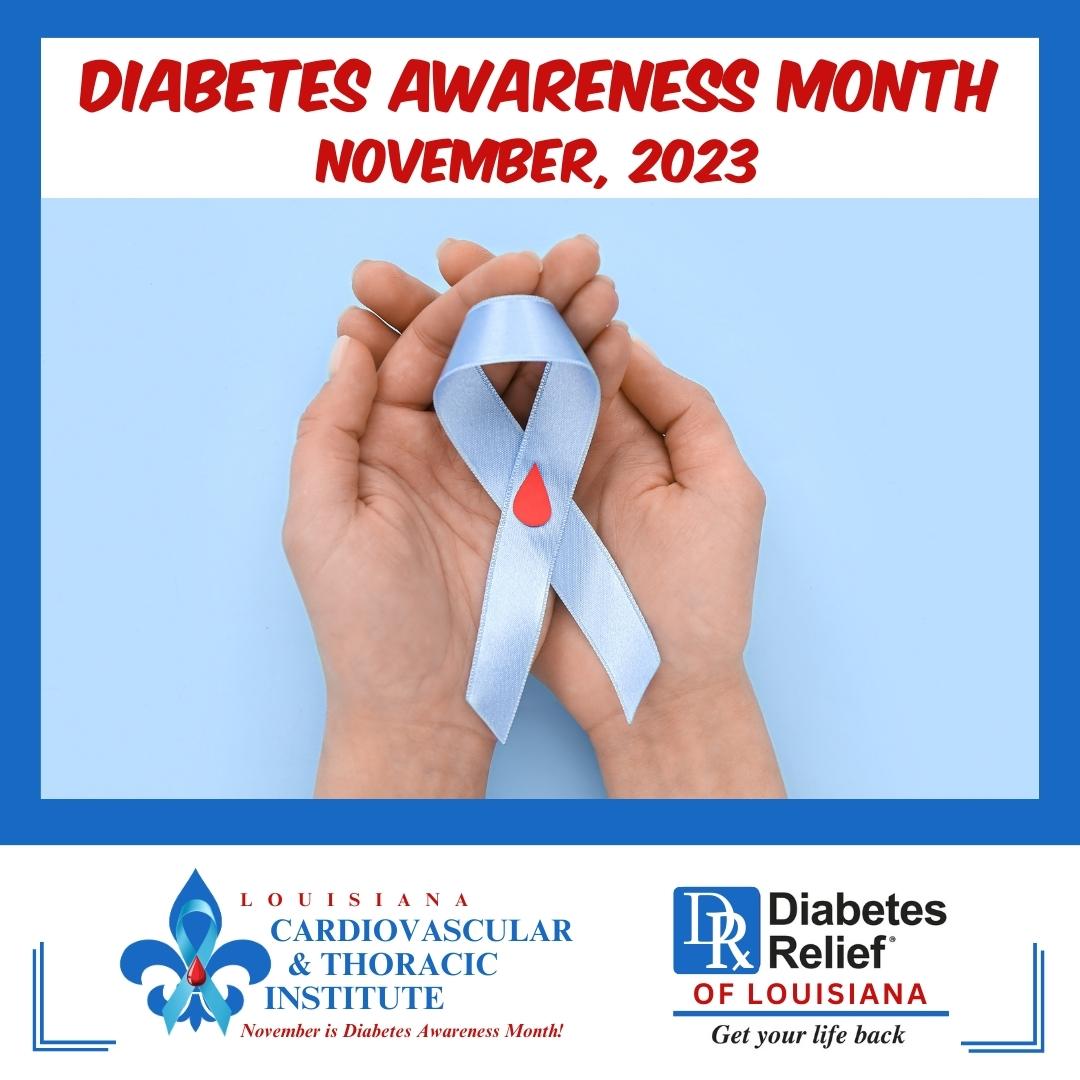November is more than just the month of falling leaves and chilly weather; it’s also Diabetes Awareness Month. This annual observance is dedicated to shedding light on a condition that affects millions worldwide. Diabetes is a chronic illness that, if left unmanaged, can lead to severe complications, one of the most prominent being cardiovascular disease. In this blog, we’ll delve into the connection between diabetes and heart health, explore ways to prevent type 2 diabetes, and provide tips for managing this condition to minimize cardiovascular risks.
The Diabetes-Heart Disease Connection:
Diabetes and heart disease share a close relationship, and individuals with diabetes are at a higher risk of developing heart-related complications. High blood sugar levels in diabetes can damage blood vessels and the heart, leading to atherosclerosis, a condition where arteries become narrowed and hardened, restricting blood flow. Over time, this can result in heart attacks,
strokes, and other cardiovascular issues leading to congestive heart failures..
Tips for Avoiding Type 2 Diabetes:
- Maintain a Healthy Diet: Focus on a balanced diet rich in fruits, vegetables, whole grains, lean proteins, and healthy fats. Limit the intake of processed foods, sugary beverages, and excessive amounts of red meat.
- Regular Physical Activity: Engage in regular exercise to help control weight, lower blood sugar levels, and improve insulin sensitivity. Aim for at least 150 minutes of moderate-intensity exercise per week.
- Monitor Blood Sugar Levels: Regularly check your blood sugar levels, especially if you have risk factors for diabetes. Early detection and management can significantly reduce the risk of complication.
- Maintain a Healthy Weight: Obesity is a significant risk factor for type 2 diabetes. Achieving and maintaining a healthy weight through a combination of diet and exercise can lower this risk.
- Limit Alcohol Consumption: Excessive alcohol intake can contribute to weight gain and increase the risk of type 2 diabetes. If you choose to drink, do so in moderation.
Managing Type 2 Diabetes:
- Medication Adherence: Take prescribed medications as directed by your healthcare provider. Consistent adherence to medications helps regulate blood sugar levels.
- Healthy Eating Habits: Continue to follow a balanced diet, paying attention to portion sizes and carbohydrate intake. Consistency in meal timing is crucial for managing blood sugar levels.
- Regular Exercise: Exercise remains a cornerstone in managing type 2 diabetes. It helps control weight, improves insulin sensitivity, and promotes overall cardiovascular health.
- Blood Sugar Monitoring: Regularly monitor your blood sugar levels as advised by your healthcare provider. This information is vital for adjusting medication doses and maintaining optimal control.
- Regular Check-Ups: Schedule regular check-ups with your healthcare team to monitor your overall health and address any emerging concerns promptly.
Conclusion:
As we observe Diabetes Awareness Month, let’s take a moment to reflect on the importance of understanding and managing this condition. By raising awareness, adopting a healthy lifestyle, and staying proactive in our health, we can work towards reducing the prevalence of diabetes and its associated complications, including heart disease. Remember, knowledge is a powerful tool in the fight against diabetes, and with the right information and support, we can make strides
towards a healthier future.
.



0 Comments